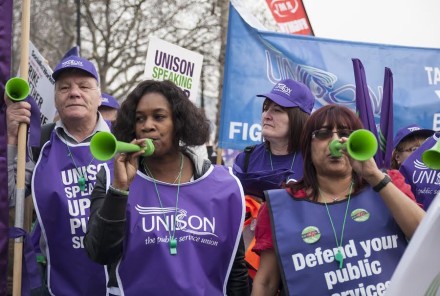
It’s 2018 and women are leading the way. You might not like or agree with her but we have a female Prime Minister – only the second in our history. More female undergraduates have been accepted into Oxford this year than men. For the first time in over 50 years, a woman has received the Nobel Prize for Physics. And although it’s taken 51 years, BBC Two has finally got its first woman breakfast show presenter in Zoe Ball.
In fact, the Beeb now have six of their main breakfast shows presented by women. Probably at a lower salary than the chaps, but we grab progress where we can. Both the deputy leader and Shadow Chancellor have talked of their preference that the next leader of the Labour Party should be a woman. We’ll gloss over Labour’s decision to park the plan for a second deputy role reserved for a woman.
An organisation as cumbersome as the BBC can make positive choices about who will take the helm of some of the country’s best-loved institutions. The notoriously close-knit, male dominated world of science has started to give proper recognition to their exceptional women. So what is taking the Labour Party and trade union movement so long?
When appointed first female general secretary of the TUC back in 2012, Frances O’Grady famously said: “We like to take our time.” Perhaps the union movement thinks its job is done. But O’Grady’s success should be a siren call to all women in the labour movement, whether lay reps or staff, that now is their time and they should, more than ever, be aiming for the most senior roles in their unions. And each of those who make it, give a hand up to other women in their organisations.
A quick search shows that of 194 leading UK trade union figures, only seven women have climbed the ladder to reach general secretary. None of the major trade unions have ever had a woman in the role, even before limitations in opportunity once they became the super unions we now know.
Unison, now the biggest union in the UK, has always been rightly proud of its membership – an impressive 1.3m workers including over a million women. We have made huge strides showing how best a union can be representative of its members, having a strong lay leadership model driving regional and national priorities. But despite its laudable efforts in securing repeated women presidents, appointing women to regional secretary roles and to the important assistant general secretary positions, the top job remains elusive.
For all our achievements, now is not the time to pat ourselves on the back and say ‘job well done’. Now is the time to be even more ambitious. It will never be easy. Just think back to the Suffragettes: their campaign, their action, their sacrifice. Done for all women. For all time. Against the grain and in opposition to the establishment. Well-behaved women rarely make history.
It can be hard to challenge without feeling as if you’re making a scene or causing a fuss. Even today, those women born in the 1950s, denied their pensions, made to work for longer, without notice or those care workers denied (by UK government legal action!) the right to the minimum wage for sleep-in shifts. It is clear, the fight for women, the fight for true equal treatment and equality of opportunity still has much to do.
To stand up and be counted, making your thoughts and opinions known, to campaign in the face of adversity, this is the space trade unionists are proud to occupy. It is the reason for which we remain a positive force for social change. We know that working alone, nothing will change – but if attitudes are challenged, together we can achieve everything.
Margaret Thomas is an assistant general secretary at Unison.




More from LabourList
Starmer or Sarwar: Scottish Labour MSPs and MPs split over Keir Starmer’s future
‘Every Lidl helps: What can the Government do to bring down food prices?’
Delivering in Government: your weekly round up of good news Labour stories